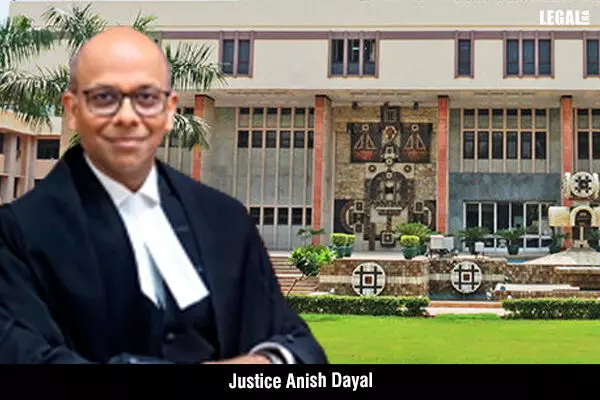- Home
- News
- Articles+
- Aerospace
- Artificial Intelligence
- Agriculture
- Alternate Dispute Resolution
- Arbitration & Mediation
- Banking and Finance
- Bankruptcy
- Book Review
- Bribery & Corruption
- Commercial Litigation
- Competition Law
- Conference Reports
- Consumer Products
- Contract
- Corporate Governance
- Corporate Law
- Covid-19
- Cryptocurrency
- Cybersecurity
- Data Protection
- Defence
- Digital Economy
- E-commerce
- Employment Law
- Energy and Natural Resources
- Entertainment and Sports Law
- Environmental Law
- Environmental, Social, and Governance
- Foreign Direct Investment
- Food and Beverage
- Gaming
- Health Care
- IBC Diaries
- In Focus
- Inclusion & Diversity
- Insurance Law
- Intellectual Property
- International Law
- IP & Tech Era
- Know the Law
- Labour Laws
- Law & Policy and Regulation
- Litigation
- Litigation Funding
- Manufacturing
- Mergers & Acquisitions
- NFTs
- Privacy
- Private Equity
- Project Finance
- Real Estate
- Risk and Compliance
- Student Corner
- Take On Board
- Tax
- Technology Media and Telecom
- Tributes
- Viewpoint
- Zoom In
- Law Firms
- In-House
- Rankings
- E-Magazine
- Legal Era TV
- Events
- Middle East
- Africa
- News
- Articles
- Aerospace
- Artificial Intelligence
- Agriculture
- Alternate Dispute Resolution
- Arbitration & Mediation
- Banking and Finance
- Bankruptcy
- Book Review
- Bribery & Corruption
- Commercial Litigation
- Competition Law
- Conference Reports
- Consumer Products
- Contract
- Corporate Governance
- Corporate Law
- Covid-19
- Cryptocurrency
- Cybersecurity
- Data Protection
- Defence
- Digital Economy
- E-commerce
- Employment Law
- Energy and Natural Resources
- Entertainment and Sports Law
- Environmental Law
- Environmental, Social, and Governance
- Foreign Direct Investment
- Food and Beverage
- Gaming
- Health Care
- IBC Diaries
- In Focus
- Inclusion & Diversity
- Insurance Law
- Intellectual Property
- International Law
- IP & Tech Era
- Know the Law
- Labour Laws
- Law & Policy and Regulation
- Litigation
- Litigation Funding
- Manufacturing
- Mergers & Acquisitions
- NFTs
- Privacy
- Private Equity
- Project Finance
- Real Estate
- Risk and Compliance
- Student Corner
- Take On Board
- Tax
- Technology Media and Telecom
- Tributes
- Viewpoint
- Zoom In
- Law Firms
- In-House
- Rankings
- E-Magazine
- Legal Era TV
- Events
- Middle East
- Africa
Delhi High Court Refuses To Revoke Trademark Of Kwikheal In Plea By Fevikwik

Delhi High Court Refuses To Revoke Trademark Of Kwikheal In Plea By Fevikwik
The Delhi High Court has declined to revoke the registration of the "Kwikheal" trademark and dismissed a petition filed by Pidilite Industries Limited, an Indian company specializing in adhesive manufacturing headquartered in Mumbai.
Justice Anish Dayal observed, “Even though the petitioner has a statutory right in its registered mark ‘FEVIKWIK’, it does not confer an exclusive right over part of the mark in ‘KWIK’. Moreover, this was the express limitation imposed by the Registrar of Trademarks. Having no such exclusive right on 'KWIK', there cannot be a right of rectification against ‘KWIKHEAL’. In any event, the rectification sought is of the respondent’s device mark, which, as noted above, has distinctive dissimilarities. The petitioner cannot have monopoly over the mark ‘KWIK’ and all its variations.”
Pidilite Industries Ltd. submitted a rectification application under Sections 47 and 57 of the Trade Marks Act, 1999, seeking the removal or cancellation of the 'Kwikheal' mark from the Register of Trade Marks.
In rejecting the plea, Justice Dayal remarked that the prevalent and predominant component across multiple Pidilite marks is "Fevikwik," which is supplemented with a sub-brand based on the product's nature.
The court stated that the inclusion of the word 'KWIK' as part of 'KWIKHEAL' in the respondent's registered device mark does not prevent the respondent from asserting commonality in the word 'KWIK'. Additionally, the court noted that 'kwik' is not the predominant element of Pidilite's marks, making it challenging to justify the removal of the 'kwikheal' mark from the Register of Trade Marks.
The court observed that the petitioner cannot claim a monopoly over the mark 'KWIK' and its variations. The petition for rectification must be independently supported and should not rely on the Bombay High Court's preliminary findings in a suit for infringement or passing off against the respondent's previous packaging, which has since been replaced by a new device or packaging. Furthermore, the court noted that the petitioner did not oppose the registration of the respondent's new device, even though the suit was still pending in the Bombay High Court at that time.



